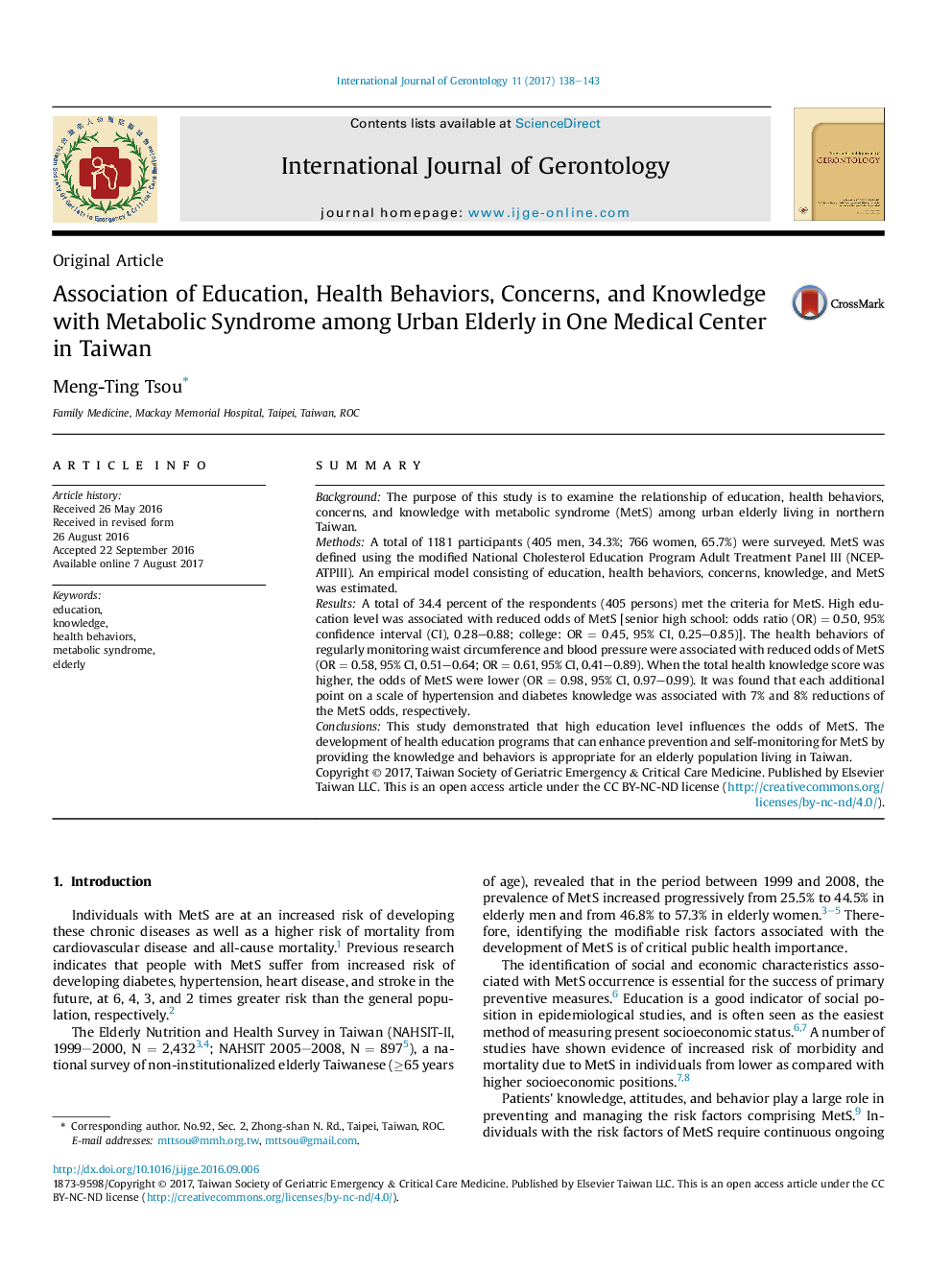| Article ID | Journal | Published Year | Pages | File Type |
|---|---|---|---|---|
| 5662651 | International Journal of Gerontology | 2017 | 6 Pages |
SummaryBackgroundThe purpose of this study is to examine the relationship of education, health behaviors, concerns, and knowledge with metabolic syndrome (MetS) among urban elderly living in northern Taiwan.MethodsA total of 1181 participants (405 men, 34.3%; 766 women, 65.7%) were surveyed. MetS was defined using the modified National Cholesterol Education Program Adult Treatment Panel III (NCEP-ATPIII). An empirical model consisting of education, health behaviors, concerns, knowledge, and MetS was estimated.ResultsA total of 34.4 percent of the respondents (405 persons) met the criteria for MetS. High education level was associated with reduced odds of MetS [senior high school: odds ratio (OR)Â =Â 0.50, 95% confidence interval (CI), 0.28-0.88; college: ORÂ =Â 0.45, 95% CI, 0.25-0.85)]. The health behaviors of regularly monitoring waist circumference and blood pressure were associated with reduced odds of MetS (ORÂ =Â 0.58, 95% CI, 0.51-0.64; ORÂ =Â 0.61, 95% CI, 0.41-0.89). When the total health knowledge score was higher, the odds of MetS were lower (ORÂ =Â 0.98, 95% CI, 0.97-0.99). It was found that each additional point on a scale of hypertension and diabetes knowledge was associated with 7% and 8% reductions of the MetS odds, respectively.ConclusionsThis study demonstrated that high education level influences the odds of MetS. The development of health education programs that can enhance prevention and self-monitoring for MetS by providing the knowledge and behaviors is appropriate for an elderly population living in Taiwan.
